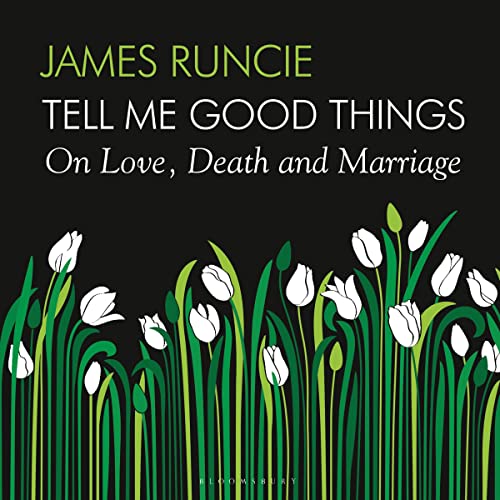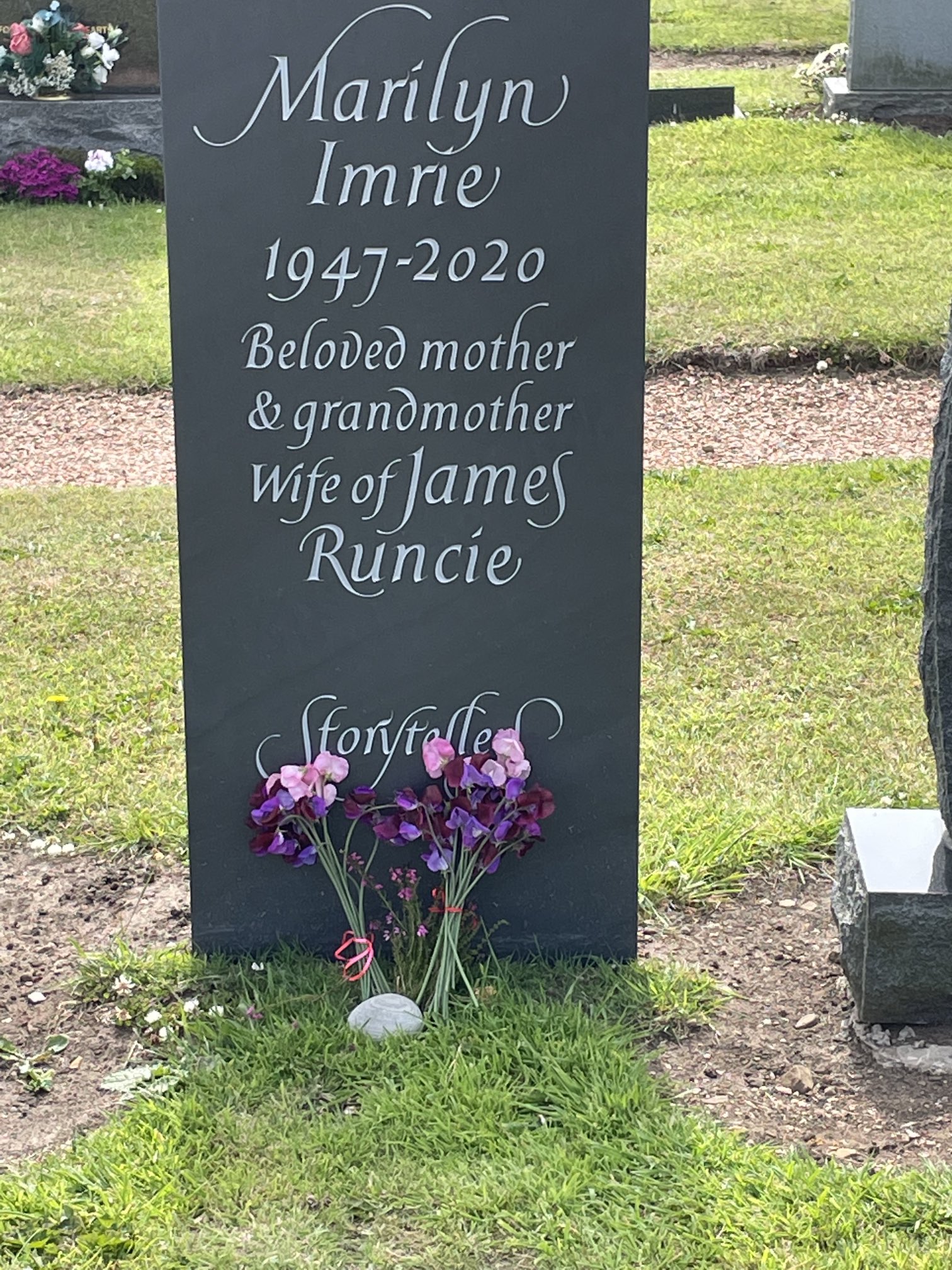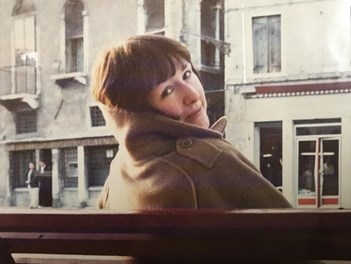There are, I confess, on my bookshelves a number of books that have been waiting to be read for some time. I bought this book last year after a rather arresting radio interview with James Runcie. There were a couple of connections that moved me into ‘I don’t need any more books, but this one is an exception’ mode. The book arrived and found itself onto the waiting room book shelf !
The first was my encounter with James at Sarum College when he came to promote his book The Road to Grantchester ( I think) in 2019. The Cavell Room was packed with an expectant Salisbury audience and we were not disappointed. We were enthralled and entertained and educated in equal measure. I was struck by his lack of vanity and his kindness. His fluency and good humour were wonderful.
What most simulated me to reach for this book was the mention of Motor Neurone Disease ( MND) – the cause of his wife’s death. This took me back to a year I spent at Saint Christophers Hospice after graduating from Kings College London in 1982. Working on one of the wards, I spent a great deal of time with a man negotiating this horrific disease. It was a privilege to be with him and his family when he died, I think it might have been one of the most profound of influences on my theological formation. In some ways, I think it has shaped the future direction of my ministry, perhaps in some ways that I did ( and still don’t) really understand. I hoped that the story of James and his wife might throw some light on these memories and my abiding questions about pain and human vulnerability.
James, the writer, knows about the importance of detail. The book opens with the story of a number of unexpected health challenges that leave his wife Marilyn Imrie and him confused and anxious. The journey to a diagnosis is long and complicated. The system is almost impossible to navigate even for the most resourceful of people. The delivery of the diagnosis in the weeks running unto the outbreak of the pandemic is heartbreaking. Imrie lasts five months and 22 days. There follows the human wrestling of how he and Marilyn’s two adult daughters cope with the diagnosis, the illness and its death sentence. And, of course the onslaught of deep loss and pain of grief.
The early pages are very challenging. The reader is reminded of the fragility and preciousness of life and love. I was left thinking in the early pages – how we waste our time and energy on such pointless ‘conveyor belt’ stuff. Those moments that wind us up. The time wasted on distraction and regret. The human struggle we all have with what the days bring. Our own ‘if only’ stories.
James Runcie has a grasp of language and detail and expression that take us into this love story. It feels as if you are in the same room listening to the music of their love and the strength of their connectivity. The curtains are drawn apart on thirty five years of marriage and its intensity and strength. In the telling of the love you can almost taste the grief. At moments I had to put the book down and get up and move to catch my breadth and find some air.
There are some tear inducing phrases. Imrie could sing. Memories are evoked of her singing a Joni Mitchell tune. How we miss the sounds of those who leave us ! James touches the pulse of this
“I had always thought she had the most beautiful voice in the world,”
These struggles in the need to provide and care happen in 2020 just as the uncertainties of the pandemic are beginning. Keeping hope alive – grasping for fragments of light – delighting in the present moment all are part of the music of this prose.
There is a quality of a love letter in these pages. James paints a picture of a free, heartfull, loving woman. In this relationship they ‘made’ each other and believed in what was possible. There is gratitude as Imrie is credited with turning him into the famous Grantchester novelist. Her editing was shaper than a fresh razor blade. Her love of life so boundless.
“Hello Gorgeousness! Tell Me Good Things!” was her opener to friends.
One of the gifts of this book, and the sheer, glorious generativity of the way in which James tells it is that within the text, we learn more about how to be human with one another in our limitations, pains and mortality. Of course it was never designed to be a ‘how to do it’ book. However – if anyone wants to know how better to be present with those journeying towards the gates of death, then this is a necessary if rather challenging read.
If anybody wants to be reminded of the nature of grief or learn more about how it takes shape in us then here in Runcie’s recollections these pages will enrich and deepen wisdom.
Here is on example when texting someone who is struggling – Do not text “How are you?” Far better James tells his reader, to send a text that says “thinking of you” and expect nothing in return.
It is raw but astonishing. It has power to move the hardest of hearts to necessary tears.Tender with an edge. It should become essential reading for anyone wanting to understand how to be a better human being. It can help us all to listen. Thank you James.




